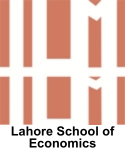Fareena Malhi
Fareena Malhi is working as a Lecturer at University of Bath. She is also serving as External Research Fellow at the Center for Research in Economics and Business (CREB) at Lahore School. She completed her PhD from American University as a Fulbright Scholar. She is an applied microeconomist with an interest in labor economics, social norms and intra-household decision-making, gender and governance. She likes to employ, behavioral and experimental methods along with survey tools and large administrative datasets to better understand the intra-household decision-making for significant life outcomes like education and female labor force participation, mobility constraints and problems encountered by women in the labor market. Previously, she has also worked with international organizations like United Nations and Oxfam America.
Safety Perceptions, Female Mobility, and Technological Solutions: An evaluation of the Women’s Safety App in Pakistan (with Sheheryar Banuri and Zehra Aftab)
Incentivizing Carpooling to Combat Congestion and Vehicular Emissions in Lahore, Pakistan (with Sabrin Beg, Sheheryar Banuri and Sadia Hussain)
The economic impact of conflict on fertility in Egypt (with Valentina Calderon-Mejia and Ana Maria Tribin)
Working Papers
When norms collide: The effect of religious holidays on compliance with COVID guidelines ( with Sheharyar Banuri and Zehra Aftab)
Unconditional Cash Transfers: Do they effect the Aspirations of the Poor?
Covid-19 and Emotional Well Being of University Students: Case Study of Pakistan (with Zehra Aftab and Humna Ahsan)
Invisible Workforce – Who Are They and Why Do They Remain Hidden? – Insights from Pakistan Time Use
Social Stigma and Invisible Work by Married Women: Hierarchical Intra-household Labour Supply Model (with Mieke Meurs)
International Association for Feminist Economists, “Gender Socialization Among Pakistani Preadolescents and Adolescents” June 2022
International Association for Feminist Economists, “Social Stigma and Invisible Work by Married Women: Hierarchical Intra-household Labour Supply Model” June 2021
Institute of Business Economics, 1st International Conference Economics and Sustainable Development, “Online Learning and Emotions of University Students during Covid-19” Apr. 2021
YSI Online Plenary 2020: New Economic Questions, “Invisible Workforce – Who Are They and Why Do They Remain Hidden? – Insights from Pakistan Time Use” Nov. 2020
International Association of Time Use Research, “Invisible Workforce and Married Women: What time use data reveals?” July 2019
American Economic Association, “Going Beyond the Surface: Public Infrastructure Investment and Intra-Household Hierarchy within Females” Jan. 2019
International Association for Feminist Economists, ““Mobility Norms, Unpaid Care Work and Household Labor Supply: Does time use give more accurate estimates? Evidence from Pakistan.” June 2018


